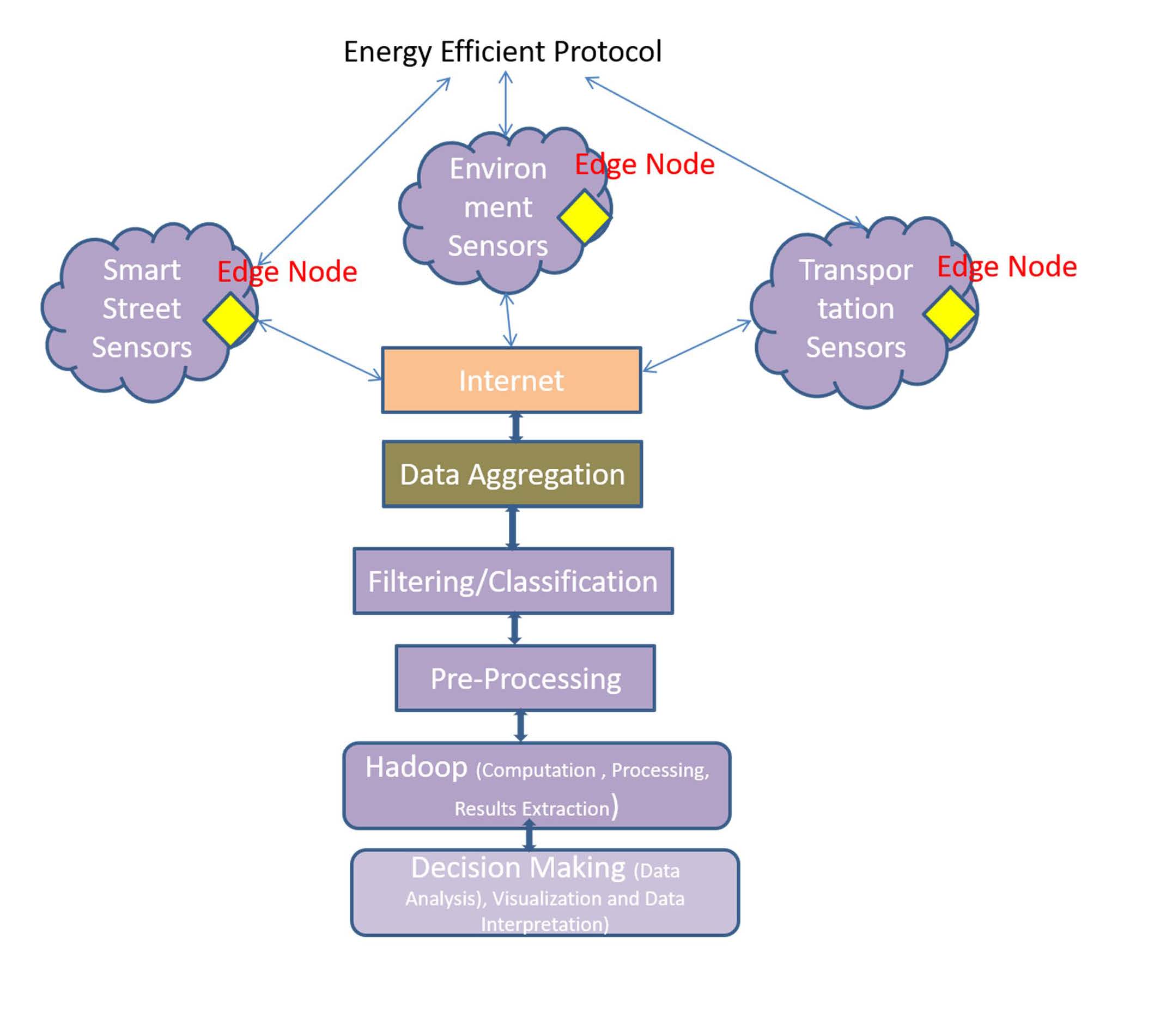Various heterogeneous devices or objects shall be integrated for transplant and seamless communication under the umbrella of internet of things (IoT). It would facilitate the open accession of data for the growth of a glut of digital services. To build a general framework of IoT is very complex task because of heterogeneity in devices, technologies, platforms and services, operating in the same system. In this paper, we mainly focus on the framework for big data analytics in smart city applications , which being a broad category specifies the different domains for each application. IoT is intended to support the vision of Smart City, where advance technologies will be used for communication for the quality life of citizens. A novel approach used in this paper, is for enhancing the energy conservation and to reduce the delay in big data gathering at tiny sensor nodes used in IoT framework. To implement the smart city scenario in terms of big data in IoT, an efficient (optimized in quality of service) WSN is required where communication of nodes is energy effcient. That is why, a new protocol QoS-IoT is proposed on the top layer of the architecture which is validated over the traditional protocols.

